
– 19th June 2013 –
12th Sunday in Ordinary Time

Gospel Text: Luke 9:18-24
vs. 18 One day when Jesus was praying alone in the presence of his disciples, he put this question to them, “Who do the crowds say I am?”
vs. 19 And they answered, “John the Baptist; others Elijah; and others say one of the ancient prophets come back to life.”
 vs. 20 “But you,” he said “who do you say I am?”
vs. 20 “But you,” he said “who do you say I am?”
It was Peter who spoke up. “The Christ of God” he said.
vs. 21 But he gave them strict orders not to tell anyone anything about this.
vs. 22 “The Son of Man” he said “is destined to suffer grievously, to be rejected by the elders and chief priests and scribes and to be put to death, and to be raised up on the third day.”
vs. 23 Then to all he said, “If anyone wants to be a follower of mine, let him renounce himself and take up his cross every day and follow me.
vs. 24 For anyone who wants to save his life will lose it; but anyone who loses his life for my sake, that man will save it.”
*******************************************
We have four commentators available from whom you may wish to choose .
Michel DeVerteuil : A Trinidadian Holy Ghost Priest, director of the Centre of Biblical renewal .
Thomas O’Loughlin: Professor of Historical Theology, University of Wales, Lampeter.
Sean Goan: Studied scripture in Rome, Jerusalem and Chicago and teaches at Blackrock College and works with Le Chéile.
Donal Neary SJ: Editor of The Sacred Heart Messenger
*******************************************************
Michel de Verteuil
Lectio Divina, The Year of Luke
www.columba.ie
General Textual Comments
Today’s gospel reading is clearly divided into sections. In your meditation, start with one alone, although you may eventually find a connection between the different sections.
In verses 18 to 21 Jesus puts to his disciples the deepest and most sacred question that we can ask one another: “Who do you say I am?” Identify with Jesus doing the asking, or with the disciples being asked. You can then concentrate either on the content of Peter’s answer or on the way Jesus asked the question, e.g. why did he ask it the way he did, or why at this particular moment of his life.
In verse 22 Jesus says clearly that he knows the difficulties that his chosen path will bring him, and at the same time he is confident that he will eventually be victorious.
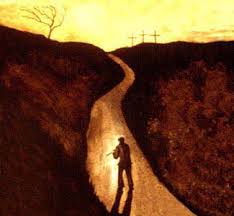 In verses 23 and 24 we have two of the most famous sayings of Jesus. In meditating on such paradoxical sayings, you must let yourself make a journey into the paradox, identifying with each part of the saying, and feeling that they are contradictory, but eventually discovering that they are not really so, and in the process entering into a new insight that touches you deeply. You might also ask yourself why is Jesus giving that kind of teaching today, to you personally or to the world.
In verses 23 and 24 we have two of the most famous sayings of Jesus. In meditating on such paradoxical sayings, you must let yourself make a journey into the paradox, identifying with each part of the saying, and feeling that they are contradictory, but eventually discovering that they are not really so, and in the process entering into a new insight that touches you deeply. You might also ask yourself why is Jesus giving that kind of teaching today, to you personally or to the world.
Scripture reflection
Lord, people today think they can know themselves through objective tests,
that can be bought in a store and “administered” by strangers.
But, as Jesus taught us, the question “Who am I?” is a sacred one.
Others can help us only if they have walked with us for years,
if we have been alone with them for long hours and they have prayed with us.
And when they have helped us it will be something so personal
that we will not want them to tell anyone about it.
Lord, we remember with gratitude a retreat we made with some companions.
We remember how after those days we knew them so much better,
partly because we had shared deeply,
but more from the mere fact that they had prayed alone in our presence.
Before that retreat, we – like “the crowds” –
had put them into categories according to their age, race or social class,
or as other people we had known who had come back to life in them.
Now we looked on them with reverence,
seeing them as unique individuals, your own specially anointed ones.
 Lord, forgive us that we want to be known as “prophets”
Lord, forgive us that we want to be known as “prophets”
or “the presence of God in the world” or “light of the world”.
Teach us to be humble like Jesus,
so that when people give us these titles
we will give them strict orders not to tell anyone anything about this.
“There is no way on this earth that you can say yes to human dignity and know that you will be spared any kind of sacrifice.” … Cesar Chavez
Lord, once we give ourselves to a noble cause
there comes a time as it did for Jesus when we know for certain
that we are destined to suffer grievously,
that we will be rejected by people who have been our teachers,
and others whom we looked upon as holy and learnéd,
and that we will be defeated many times.
But deep down within us we know too that we will always start again.
“In Caribbean politics, the moon is promised by politicians, and democracy consists in making a choice between competing sets of promises which are dangled temptingly every four or five years.” … Michael Manley
Lord, we pray for our political leaders, that they may be more like Jesus,
that they will respect us sufficiently to tell us honestly
that we must renounce our natural desire for easy solutions to our problems,
and that we must take up every day
the burden of solving these problems from our own resources.
But of course they must also be like Jesus in setting the example by doing this themselves.
Lord, it is one of the marks of Western civilization today
that we need to be superior to others in order to establish our identity:
* men humiliate women to prove their masculinity;
* nations arm themselves to the teeth to gain the respect of other nations;
* as a Church, we prove others false so that we can call ourselves true.
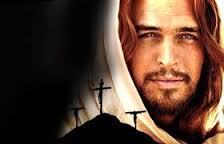 Send us teachers like Jesus to remind us
Send us teachers like Jesus to remind us
that we can never find our true vocation by concentrating on ourselves,
but if we serve others after his example you can lead us to our true selves.
“If today’s flourishing civilizations remain selfishly wrapped up in themselves, they could easily place their highest values in jeopardy, sacrificing their will to be great to the desire to possess more.” … Pope Paul VI
Lord, we thank you that the Popes are reaching nations with the message of Jesus
that if they want to save their true greatness
they must be willing to give up some of their power and security.
**********************************************
Thomas O’Loughlin
Liturgical Resources for Year C (Luke)
www.columba.ie
Introduction to the Celebration
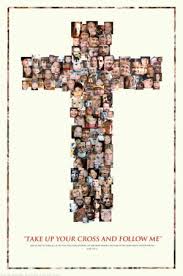
And our cross is…
We have gathered here as we call ourselves ‘Christians’ — literally ‘followers of the Anointed One’. But what does it mean to follow the Anointed One of God? Today we get a stark answer to that question: ‘If anyone wants to be a follower of mine, let him renounce himself and take up his cross every day and follow me.’ Let us begin our assembly by reflecting on how well we follow him.
Gospel Notes
This is the scene conventionally labelled ‘the confession at Caesarea Philippi’. It is found in all three synoptics. But Luke’s version is the most distinctive, by far the shortest, and the most stark. In Mark this is the very centre of his whole story and there is the complaint of Peter that draws out the cry from Jesus: ‘Get behind me, Satan!’ Then in Matthew we have all that is in Mark, plus the Petrine commission: ‘You are Peter and on this rock I will build my church.’ Indeed, Matthew’s text has been used so often that this reading from Luke is virtually unknown, and when it is known we silently conflate it with Mt / Mk.
Read Luke and note the starkness:
(1) There is no location given — Caesarea Philippi is mentioned in Mark (who is followed by Matthew) but this detail is omitted by Luke — this is just an event that has happened on the road as part of the following of Jesus by his disciples.
(2) There is just Jesus and ‘disciples’ — note there is not even a reference to ‘The Twelve’; the scene is one of Jesus with the followers (i.e. the church who are listening to Luke) for Luke has made this an archetypal encounter. Peter is only there to give the essential answer; he is not the focus of Jesus’s attention as he is in differing ways in Mark and Matthew.
(3) There is no banter: the conditions of discipleship are given as statements of what life will be like.
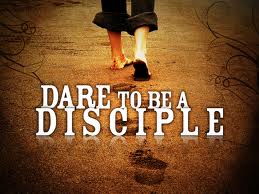 (4) Just in case there is any mistake about the nature of discipleship, Luke adds a single word to the text of Mk 8:34 (which Matthew takes over from Mark without change): ‘daily’
(4) Just in case there is any mistake about the nature of discipleship, Luke adds a single word to the text of Mk 8:34 (which Matthew takes over from Mark without change): ‘daily’
— discipleship will not just involve taking up a cross or some spectacular suffering which one might well avoid, but it will mean taking up the cross every day.
Luke takes a scene and story that is localised as part of the memory of the times of Jesus in Mark and Matthew, and universalises it for the experience of the church. This is the Christ of God speaking to every community in every time about whom they are following and what that following will involve.
Homily Notes
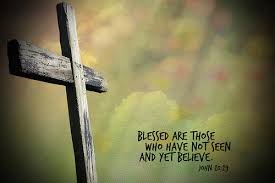 1. Who is Jesus? On this question hangs not only the whole of Christian theology, but every aspect of our life of faith. ‘Christology’ – which is the attempt to provide the answer to the question – is not an abstract academic study within a theology course, but the constant activity of believers: when we celebrate, when we act or write or paint or sculpt, when we engage in social activities, in all of these there is implicit christology. Every action of the church in some way says or betrays how Christians in their hearts and lives – as distinct from their repeated rhyming off of creeds or formulae of orthodoxy – answer the question. Some of those statements and actions might show him as merciful; others might show him as a killjoy or as a tyrant (but in the spiritual realm). Then there are attitudes that are tantamount to docetism: he never really became an individual human in the midst of the circus of life; and there are attitudes that are tantamount to reducing Jesus to a moral philosopher or a ‘God-like’ chap. And, there are actions of Christians that imply he is irrelevant to the actual living of life in society.
1. Who is Jesus? On this question hangs not only the whole of Christian theology, but every aspect of our life of faith. ‘Christology’ – which is the attempt to provide the answer to the question – is not an abstract academic study within a theology course, but the constant activity of believers: when we celebrate, when we act or write or paint or sculpt, when we engage in social activities, in all of these there is implicit christology. Every action of the church in some way says or betrays how Christians in their hearts and lives – as distinct from their repeated rhyming off of creeds or formulae of orthodoxy – answer the question. Some of those statements and actions might show him as merciful; others might show him as a killjoy or as a tyrant (but in the spiritual realm). Then there are attitudes that are tantamount to docetism: he never really became an individual human in the midst of the circus of life; and there are attitudes that are tantamount to reducing Jesus to a moral philosopher or a ‘God-like’ chap. And, there are actions of Christians that imply he is irrelevant to the actual living of life in society.
2. So we have our two starting points: (1) who is Jesus is as much a question for our gathering today as it was in the assembly in which Luke was telling his story; and (2) there are as wide a diversity of opinions among those who have heard his words as ever before. It is a rare occurrence when a situation in the gospel and a situation in a community today have such complete congruence.
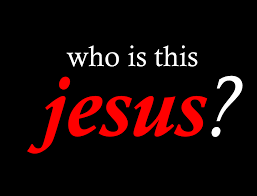 3. But how do we make this question small enough to say something focused in the course of a homily? Perhaps one could begin with a seemingly frivolous question: what is Jesus’s surname? Is it ‘Christ’? This is quite a common practice in indices in books on the history of ideas where Jesus is referred to as a kind of populist philosopher: ‘Christ, Jesus, pp n, n, n.’ Funnily enough, this is not a new phenomenon: it is Luke who records that the followers of Jesus were called ‘Christians’ in the Greco-Roman world, and many Romans such as Tacitus and Pliny thought so as well and assumed that ‘Chrestus’ or ‘Christus’ was simply the name of the originator of our cult. The trend continues today when people say ‘you followers of Christ’; and we are often just as guilty when we say ‘we are followers of Christ’. But the word ‘christ’ is not a name, but the basic title by which we acknowledge who Jesus is.
3. But how do we make this question small enough to say something focused in the course of a homily? Perhaps one could begin with a seemingly frivolous question: what is Jesus’s surname? Is it ‘Christ’? This is quite a common practice in indices in books on the history of ideas where Jesus is referred to as a kind of populist philosopher: ‘Christ, Jesus, pp n, n, n.’ Funnily enough, this is not a new phenomenon: it is Luke who records that the followers of Jesus were called ‘Christians’ in the Greco-Roman world, and many Romans such as Tacitus and Pliny thought so as well and assumed that ‘Chrestus’ or ‘Christus’ was simply the name of the originator of our cult. The trend continues today when people say ‘you followers of Christ’; and we are often just as guilty when we say ‘we are followers of Christ’. But the word ‘christ’ is not a name, but the basic title by which we acknowledge who Jesus is.
4. Our confession of faith is: ‘Jesus is the Christ.’ He is the individual we call ‘the anointed one’. 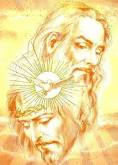 Chosen by the Father to enter into the totality of our human experience, Jesus is Lord; and he is the Son giving to all reality a worth such that it can exist in the presence of God. To say ‘Jesus is the Christ’ is to say that all humanity is offered the chance to be transformed into the divine image. It is a wholly different way of looking at the world and at the human condition. And if we really see the world in this new way – as countless brothers and sisters of Jesus have down the centuries – then we will react in a wholly different way to human joys and human sorrows. All that is good and noble can lead us towards holiness; all that is sordid or sad can be transformed.
Chosen by the Father to enter into the totality of our human experience, Jesus is Lord; and he is the Son giving to all reality a worth such that it can exist in the presence of God. To say ‘Jesus is the Christ’ is to say that all humanity is offered the chance to be transformed into the divine image. It is a wholly different way of looking at the world and at the human condition. And if we really see the world in this new way – as countless brothers and sisters of Jesus have down the centuries – then we will react in a wholly different way to human joys and human sorrows. All that is good and noble can lead us towards holiness; all that is sordid or sad can be transformed.
5. However, a small start would be to stop using ‘Christ’ as if it were a surname – that is the practice of those who have not encountered Jesus but just heard about him – and begin using it as the our basic confession of faith: Jesus is the Christ. Amen.
*****************************************
3. Sean Goan
Let the reader understand
www.columba.ie
Gospel
It is of no small significance that this incident from the life of Jesus begins with him at prayer. He is often depicted this way in Luke and usually before events or sayings of great importance. This is certainly the case here. Having been on his public ministry, preaching, teaching, healing and engaging in controversy with his opponents, Jesus now asks the all-important question: ‘Who do people say that I am?’ 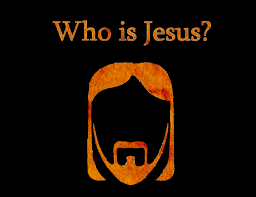 The replies suggest there are a variety of views, all of them indicating that the people see Jesus as in some way part of God’s saving plan for his people. The expectation had arisen that Elijah would return to be a forerunner of the Messiah or the end time. It is Peter though, who answers for the apostles. Jesus is the Christ that is the Messiah, the anointed one of God, long foretold in the scriptures and eagerly awaited by the people. However, it is one thing to know who he is; it altogether another to know what that will mean both for him and his followers.
The replies suggest there are a variety of views, all of them indicating that the people see Jesus as in some way part of God’s saving plan for his people. The expectation had arisen that Elijah would return to be a forerunner of the Messiah or the end time. It is Peter though, who answers for the apostles. Jesus is the Christ that is the Messiah, the anointed one of God, long foretold in the scriptures and eagerly awaited by the people. However, it is one thing to know who he is; it altogether another to know what that will mean both for him and his followers.
Jesus immediately speaks of his own rejection and death and of the reality of the cross in the life of his followers. This is not expected and indeed probably caused no end of confusion and concern among the disciples. However, It gets to the heart of the matter. Jesus does not come as a knight in shining armour to vanquish the enemy. He comes rather as a servant prepared to pay the ultimate price for the sake of the good news and just as importantly he asks his followers to be prepared to travel the same road.
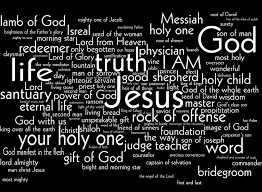
Reflection
Any experience of suffering can leave us struggling for words to make sense of it. At such times we might hear reference to the ‘mystery of the cross’. The image that often accompanies this language is that of the all-wise, all-knowing God who sends crosses to people that are ultimately for their own good. It is a curious fact, however, that Jesus never uses the language of the cross in that way. For him the cross is the suffering that comes as a consequence of being faithful to the good news of the kingdom, the cross that comes from doing what Jesus did. By being faithful to the end, Jesus showed that evil will not triumph over good. We are asked to follow him by taking up our cross, that is by not seeking our own will first but the will of the Father who wants the world to be a place of peace and true justice. That is not an easy path to follow but it is the one that gives life.
********************************************
4. Donal Neary S.J.
Gospel reflections for Year C: Luke
www.messenger.ie
Jesus making sense
Taking up a cross – a theme of Jesus. The cross will be the destiny of Jesus, but not the end. It will be love to the end but not the end of his life among us. We are people always with a future, because of Jesus who is alive now. Do we really believe this?
The road of God is like the road of Jesus. On it we find companionship with like-minded people, we find love and joy, and we find the cross. We are to take up the cross daily, which means we are to accept as best we can the trials and troubles that life sends us. God is with us in this.
 We find his help in the example of Jesus. He often told his followers that he would suffer, be crucified and be put to death. They did not believe this, and neither did they remember that he promised he would rise from the dead.
We find his help in the example of Jesus. He often told his followers that he would suffer, be crucified and be put to death. They did not believe this, and neither did they remember that he promised he would rise from the dead.
Only when we accept and enter into the cross of life will we know the real hope that comes from following the Lord Jesus.
In the middle of the darkness is the light. Each of us finds Jesus in our own lights and darkness, as his word reaches out to us there.
There is the cross of following him, which leads many today to torture and death. We pray in solidarity with them.
The cross – should it have a figure? It should be empty with the triumph of the resurrection. The first crucifixes had on them the risen Christ. He will suffer and enter into his glory. The end is never what we think it is. Everything in life can lead to Jesus, and he brings everything in life into his light.

Lord, in your light, we see light.
May we trust always in your light.